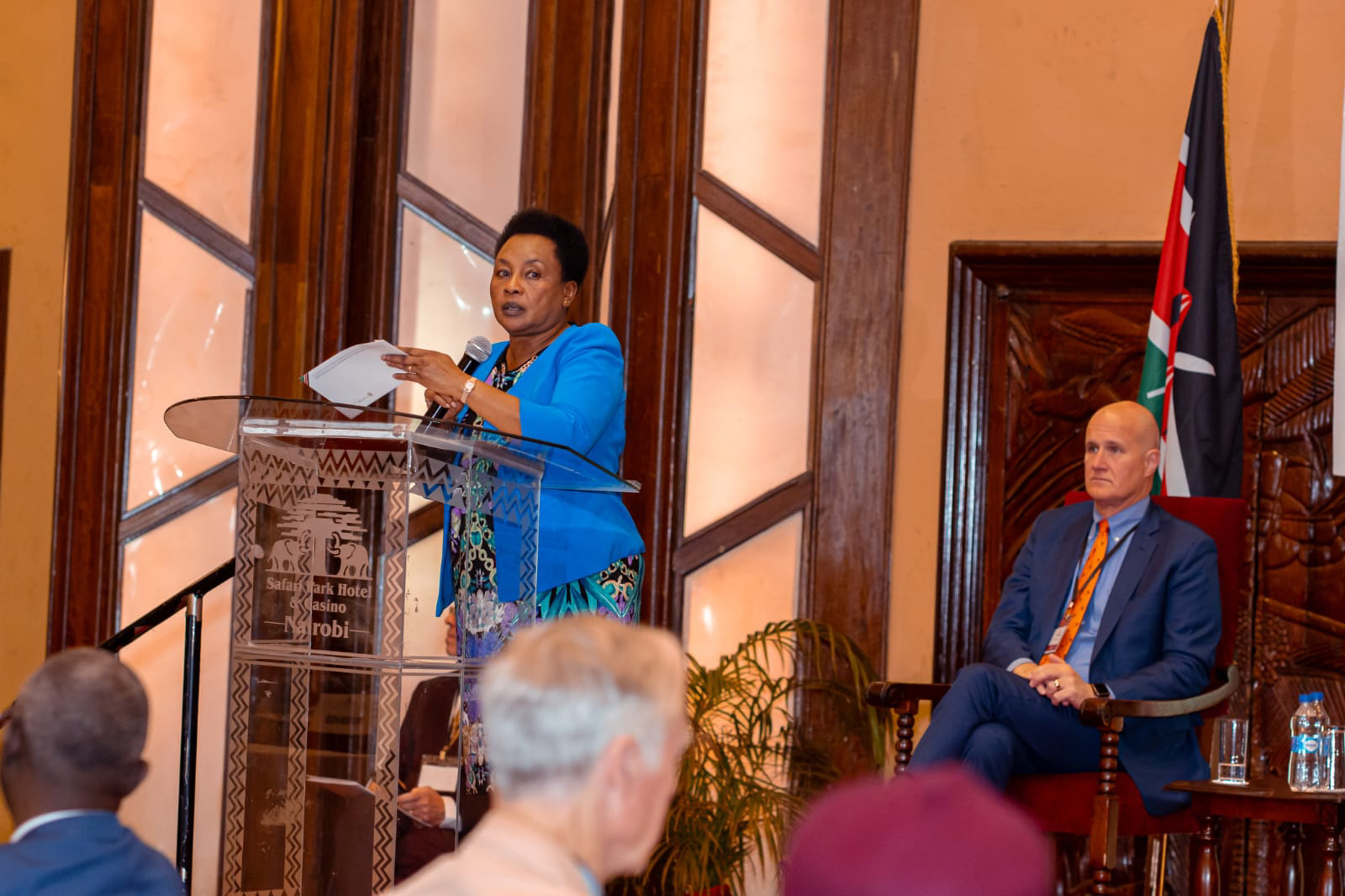OBV IS A FORM OF HUMAN RIGHT VIOLATION AGAINST WOMEN
The Kenya Women Parliamentary Association (KEWOPA) have today joined hands together to speak against Obstretic Violence (OBV), and to bring an end to OBV stigmatization. The women in parliament drawn from different counties noted Obstretic Violence is a major issue affecting women across the nation and the issue had silently been covered for a long time.
Speaking during the forum, the founder of Gamafriça Foundation and Member of Parliament for Githunguri Hon. Gathoni Wamuchomba said that the issue of OBV touches every woman who gives birth in Kenya. Wamuchomba added that OBV is a direct violation of human rights on pregnant women in the delivery rooms, labor wards and after delivery.
"The issue of OBV is touching every woman who goes through childbirth in Kenya. It is a form of human right violation on women who are pregnant in the delivery rooms, labour wards, and after delivery."
PHOTO: Hon. Gathoni Wamuchomba, MP Githunguri and Founder of Gamafriça addressing the press during the OBV Sensitization KEWOPA Meeting.Wamuchomba further indicated that it has come to their attention that the dignity of women in Kenya no longer exists, especially during delivery. She says that women are being violated in every way, including economically, physically, verbally, emotionally and psycholocaly.
"We have realized that women dignity in Kenya has been eroded during childbirth. In this case, women are violated physically, verbally, emotionally, psycholocaly and even economically."
In addition, Hon. Wamuchomba said that every woman, regardless of her social or economic status should be accorded a dignified and respectful childbirth experience, free from any form of abuse.
The Chairperson for the Kenya Women Parliamentary Association (KEWOPA) and Women Representative for Kajiado County Hon. Leah Sankaire said that today's discussions are very important and timely, adding that the conversations condemning OBV have never been there.
"I think this topic today is very important and timely. You know sometimes we go through a lot but we never hear conversations against Obstretic Violence. This is the time to speak about OBV because it has affected many mothers in every corner of the country."
PHOTO: The Chairperson Kenya Women Parliamentary Association (KEWOPA) and Women Representative Kajiado County addressing members of the press during the OBV Sensitization KEWOPA Meeting.Hon. Leah as well says that the effects are not only felt by mothers alone but by the community at large, and that there are no existing laws that protect women from OBV.
"We do not have laws that protect women from OBV, and therefore we are here to engage on this issue and to try come up with ideas on how we can assist women."
Obstetric violence (OV) is a specific form of violence against women that violates their human rights. As stated in organic Law on Women’s Rights in other developed countries, it is a violation of women’s right to have a violation free life, steered by the obstetric care providers regarding the body and the reproductive processes of the woman; which incorporates dehumanized assistance, abuse of interventionist actions, medicalization and reversion of the process from natural to pathological, that results on loss of their right to decide about their own body and negative impact on quality of women’s life.
The World Health Organization (WHO) statement on obstetric violence addresses OBV because it not only violates women’s rights to respectful care, but also threatens their right to life as a violation of human rights, health, bodily integrity, and freedom from discrimination.
OBV is also addressed in many literatures relating to the concept of human rights because every woman is equally free to exercise her human rights and freedoms, which include: the right to life; the right to physical, psychological, and moral integrity; the right to freedom and personal safety; the right not to be tortured; and the right to have her dignity respected and her family protected; The right to equality of protection from the law and by the law.
Obstetric violence persists in various forms around the world (verbal violence, physical violence, sexual violence, social discrimination, neglect of care, and inappropriate use of procedures and skills), despite the fact that it is unacceptable to health care providers and society. It happens in both public and private health care facilities during obstetric care, and it causes physical or psychological harm to a woman during pregnancy, birth, and puerperium because OV is a new term, it is not recognized as a human rights violation.
Preventing and reducing violence against women and maternal mortality are sustainable development goals (SDGs). Every day, approximately 830 women die around the world, with developing countries accounting for 99% of maternal deaths. Many countries, including Ethiopia, have bet on improved access to health care facilities as a means to reduce maternal mortality. However, maternal mortality is only a small proportion of the global burden of the maternal morbidity spectrum. This is because for one maternal death there are many women affected by severe acute maternal morbidity (SAMM) during pregnancy, childbirth, and the postpartum period, this is might be occurred due to obstetric violence. WHO calls for action and research to prevent and eliminate this invisible wound and human rights issue (obstetric violence).
By John Toris
0713511032





Comments
Post a Comment